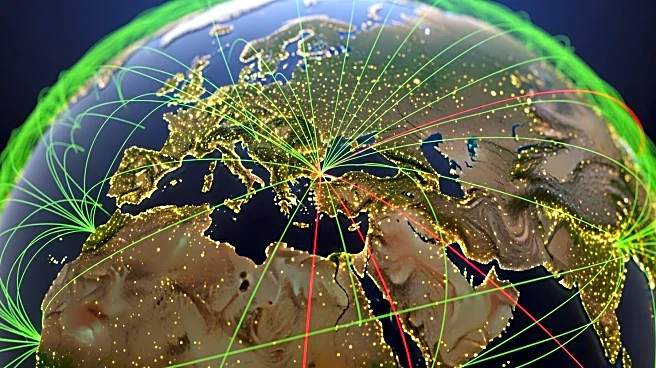What's Happening?
President Trump recently stated that Indian Prime Minister Narendra Modi assured him that India would cease purchasing oil from Russia, which is under U.S. sanctions. However, India's foreign ministry spokesperson Randhir Jaiswal refuted this claim, stating
he was unaware of any such conversation or assurance from Modi. India remains a significant importer of oil and gas, including Russian oil, and has emphasized the importance of stable energy prices and diversified sourcing. Despite Trump's calls to halt Russian oil purchases, India has continued its imports, citing the energy needs of its large population and economy. The situation has led to increased tariffs from the U.S. on Indian imports as a penalty for continuing Russian oil purchases.
Why It's Important?
The ongoing trade tensions between the U.S. and India have significant implications for international relations and economic policies. India's refusal to comply with U.S. demands highlights its strategic autonomy and focus on national interests. The situation could affect global oil markets, as India is a major consumer of Russian oil. Additionally, the increased tariffs imposed by the U.S. could impact bilateral trade, affecting industries reliant on imports and exports between the two nations. The diplomatic friction underscores the challenges in aligning international policies amidst geopolitical complexities.
What's Next?
Diplomatic efforts are underway to resolve trade negotiations between the U.S. and India. Both nations are working to find common ground, with trade delegations actively engaged in discussions. The outcome of these negotiations could influence future trade policies and economic relations. Stakeholders, including businesses and policymakers, are closely monitoring developments, as any resolution could have far-reaching effects on trade dynamics and energy sourcing strategies.
Beyond the Headlines
India's stance on Russian oil imports reflects broader geopolitical shifts, as nations navigate complex alliances and economic dependencies. The situation raises questions about the balance between national interests and international pressure, particularly in energy policy. India's approach may influence other countries facing similar dilemmas, potentially reshaping global energy markets and diplomatic strategies.















